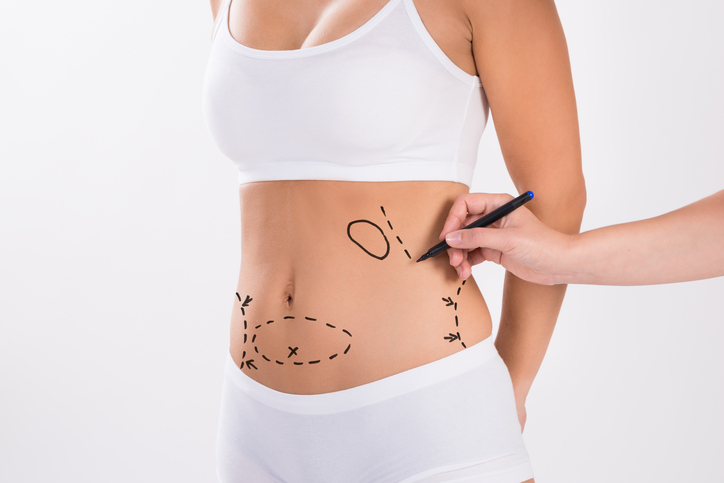
Also known as abdominoplasty, a tummy tuck removes excess fat and skin, and in most cases restores weakened or separated muscles to create a smoother and firmer abdominal profile.
How much does a tummy tuck cost?
Learn more about tummy tuck costs as well as pricing for other plastic surgery procedures here at UMass Memorial Cosmetic Surgery Center in Worcester, MA. We also serve Boston, Cape Cod, and surrounding areas. Financing is also available for tummy tucks and other cosmetic surgery procedures. Call us to get started at (508) 334-5990.
Tummy tuck testimonial
I am so blessed with the results of my surgery. I had a large weight loss and had four children and needed some ‘help’ getting my body back. Dr. Rothkopf and his staff are wonderful. They were attentive and caring and provided great care before and especially after my surgery. I would and have recommended them to anyone looking to have cosmetic surgery. You are truly in good hands. Kudos to Dr. Rothkopf and his staff!
Read more Patient Testimonials
Click the links below to jump to specific questions you may have about tummy tuck:
- Reasons for a tummy tuck procedure
- Candidates for a tummy tuck
- What to expect from a tummy tuck
- Tummy Tuck Resources
- Plastic Surgery Resources
Reasons for a tummy tuck procedure
Many of us strive for a flat and well-toned abdomen through exercise and weight control. But sometimes these methods cannot achieve our goals. Even individuals of otherwise normal body weight and proportion can develop a loose or sagging abdomen that protrudes. The most common causes for this condition include:
Candidates for a tummy tuck
The ideal candidates for tummy tuck surgery are patients in relatively good physical shape, but who have excess skin or fat in the abdominal area that is resistant to exercise. This includes the laxity of underlying muscles due to pregnancy, which have stretched beyond the point where they can naturally return to their normal location and shape.
What to expect from a tummy tuck consultation
Prior to scheduling tummy tuck surgery, you will meet with your plastic surgeon for a consultation. Be prepared to discuss:
- Why you want the abdominoplasty surgery, your expectations and desired outcome from a tummy tuck
- Medical conditions, drug allergies and medical treatments
- Use of current medications, vitamins, herbal supplements, alcohol, tobacco and drugs
- Previous surgeries
Your tummy tuck surgeon may also:
- Evaluate your general health status and any pre-existing health conditions or risk factors before a tummy tuck
- Take photographs for your medical record
- Discuss your options and recommend a course of treatment after a tummy tuck
- Discuss likely outcomes of the abdominoplasty and any risks or potential complications
Prior to a tummy tuck procedure
You may be asked to:
- Get lab testing or a medical evaluation
- Take certain medications or adjust your current medications before a tummy tuck
- Stop smoking well in advance of, and after, tummy tuck plastic surgery
- Avoid taking aspirin, anti-inflammatory drugs and herbal supplements as they can increase bleeding during tummy tuck surgery
Special instructions you receive will cover:
- What to do on the day of your tummy tuck procedure
- The use of anesthesia during your tummy tuck
- Postoperative care and follow up after the tummy tuck
Call us to schedule your tummy tuck procedure at (508) 334-5990
The tummy tuck procedure
A full tummy tuck requires a horizontal incision in the area between the pubic hairline and navel. The shape and length of the incision will be determined by the degree of the necessary tummy tuck correction.
Through this incision, weakened abdominal muscles are repaired and sutured and excess fat, tissue and skin is removed. A second incision around the navel may be necessary to remove excess skin in the upper abdomen. Sutures, skin adhesives, tapes or clips close these tummy tuck incisions.
Your tummy tuck will result in a flatter, firmer abdominal contour that is more proportionate with your body type and weight. The final results of the tummy tuck may be initially obscured by swelling and your inability to stand fully upright until internal healing is complete. Within a week or two, after your tummy tuck you should be standing tall and confident about your new slimmer profile.
Tummy tuck variations
There are many variations both to the tummy tuck technique and design of the incisions. In some instances, it may be possible to avoid an incision around the navel. When the amount of loose skin is minimal and the excess fat deposits are located below the navel, a short horizontal incision is all that is necessary during the tummy tuck. This procedure is called a partial or mini abdominoplasty.
Sometimes liposuction may be used alone, or in conjunction with abdominoplasty, to remove abdominal fat during a tummy tuck cosmetic surgery procedure. Endoscopic abdominoplasty is another technique for minimizing scars and may be useful when patients have only a mild degree of excess fat and muscle laxity.
People who are obese may be asked to consider weight loss first before a tummy tuck procedure. This would include diet and exercise recommendations, and referral to a bariatric surgeon when appropriate. Popular weight-loss surgery procedures include lapband surgery and gastric bypass. In some rare cases, where patients have a significant amount of excess hanging skin, a patient may need a modification of the tummy tuck procedure called panniculectomy.
Anesthesia
Medications are administered for your comfort during the tummy tuck surgical procedures. The choices include intravenous sedation and general anesthesia. Your doctor will recommend the best choice for you for your tummy tuck
How long will a tummy tuck take?
 A tummy tuck generally requires about two to five hours, depending on the extent of the procedure, the desired outcome and the preoperative condition of the patient.
A tummy tuck generally requires about two to five hours, depending on the extent of the procedure, the desired outcome and the preoperative condition of the patient.
Does a tummy tuck hurt?
Your abdomen will be swollen and sore for the first few days after your tummy tuck procedure. Your plastic surgeon can prescribe pain medication as needed. This typically entails narcotics for the first few days after tummy tuck surgery and non-narcotic pain relievers after that.
Average hospital stay for a tummy tuck
Some patients may not need an overnight hospital stay after the tummy tuck. Others may spend one or two days in the hospital, depending on the extent of the cosmetic procedure.
Post-procedure care for a tummy tuck
Tummy tuck is a major surgical procedure. You can expect a considerable recovery time compared with other plastic surgeries. Most people require one to three weeks before returning to work and a normal schedule after the tummy tuck.
Following your tummy tuck surgery, dressings or bandages may be applied to your incisions, and you may be wrapped in an elastic bandage or a compression garment to minimize swelling and to support your abdomen as it heals. A small, thin tube may be temporarily placed under the skin to drain any excess blood or fluid that may collect after the tummy tuck.
Be sure to ask your plastic surgeon specific questions about what you can expect during your individual recovery period after your tummy tuck.
- Where will I be taken after my plastic surgery is complete?
- What medication will I be given after tummy tuck surgery?
- Will I have dressings/bandages after surgery?
- When will they be removed?
- Are tummy tuck stitches removed? If so, when?
- When can I resume normal activity and exercise?
- When do I return for follow-up care after my tummy tuck?
It is a good idea to exercise after tummy tuck surgery, but only after enough healing time has passed. Your surgeon will give you specific instructions on when you can exercise after your tummy tuck and what type of exercises are appropriate. As a general guideline, tummy tuck patients can start light to moderate activity after four weeks. After six to eight weeks after tummy tuck cosmetic surgery, most people can resume all exercise and activity.
The abdominal scars will appear to worsen during the first three to six months after tummy tuck surgery. They may take nine months before they flatten and lighten in color. The scars never disappear completely after a tummy tuck, but clothing can hide them easily. Ask your cosmetic surgeon if he/she recommends any creams or ointments to use after you’ve completely healed from the tummy tuck to help with the scars.
Possible complications from a tummy tuck
Potential complications can be lessened if you carefully follow your surgeon’s pre- and post- tummy tuck surgery instructions, including quitting smoking. However, these risks are higher in people with underlying medical conditions, such as heart or lung disease, poor circulation or diabetes. People who have had another surgery recently in the abdominal region are also at a higher risk for complications after a tummy tuck.
Possible risks from tummy tuck include:
- Unfavorable scarring
- Bleeding (hematoma)
- Infection
- Fluid accumulation after tummy tuck
- Poor wound healing
- Skin loss
- Blood clots
- Numbness or other changes in skin sensation after tummy tuck
- Anesthesia risks
- Skin discoloration and/or prolonged swelling
- Fatty tissue found deep in the skin might die (fat necrosis)
- Major wound separation after tummy tuck
- Asymmetry
- Recurrent looseness of skin
- Pain after tummy tuck
- Deep vein thrombosis, cardiac and pulmonary complications
- Persistent swelling in the legs
- Nerve damage
- Possibility of corrective surgery after tummy tuck
- Suboptimal aesthetic result
Schedule Your Consultation Today!
To learn more about Abdominoplasty or to schedule your consultation today, call us at (508) 334-5990 or fill out an online contact form by clicking here.
Tummy Tuck Resources
- Hear from Kara about her tummy tuck.
- How much does a tummy tuck cost?
- Is tummy tuck surgery right for you?
- Body contouring lifts bodies and spirits.
- Get a tummy tuck for a bikini-perfect body.
- Learn more about liposuction at UMass Memorial Cosmetic Surgery Center in Worcester, MA.
- Visit the American Society of Plastic Surgeons (ASPS) site for more information on tummy tuck.




